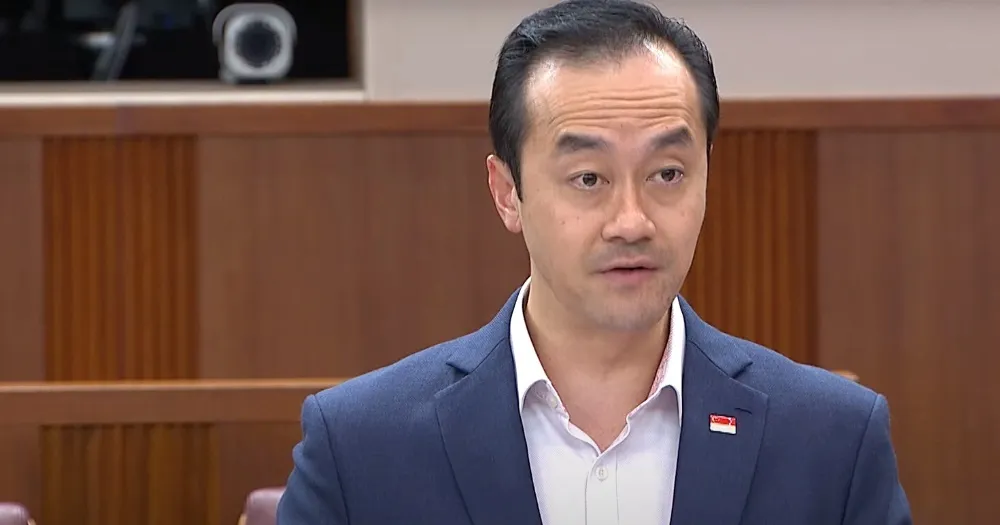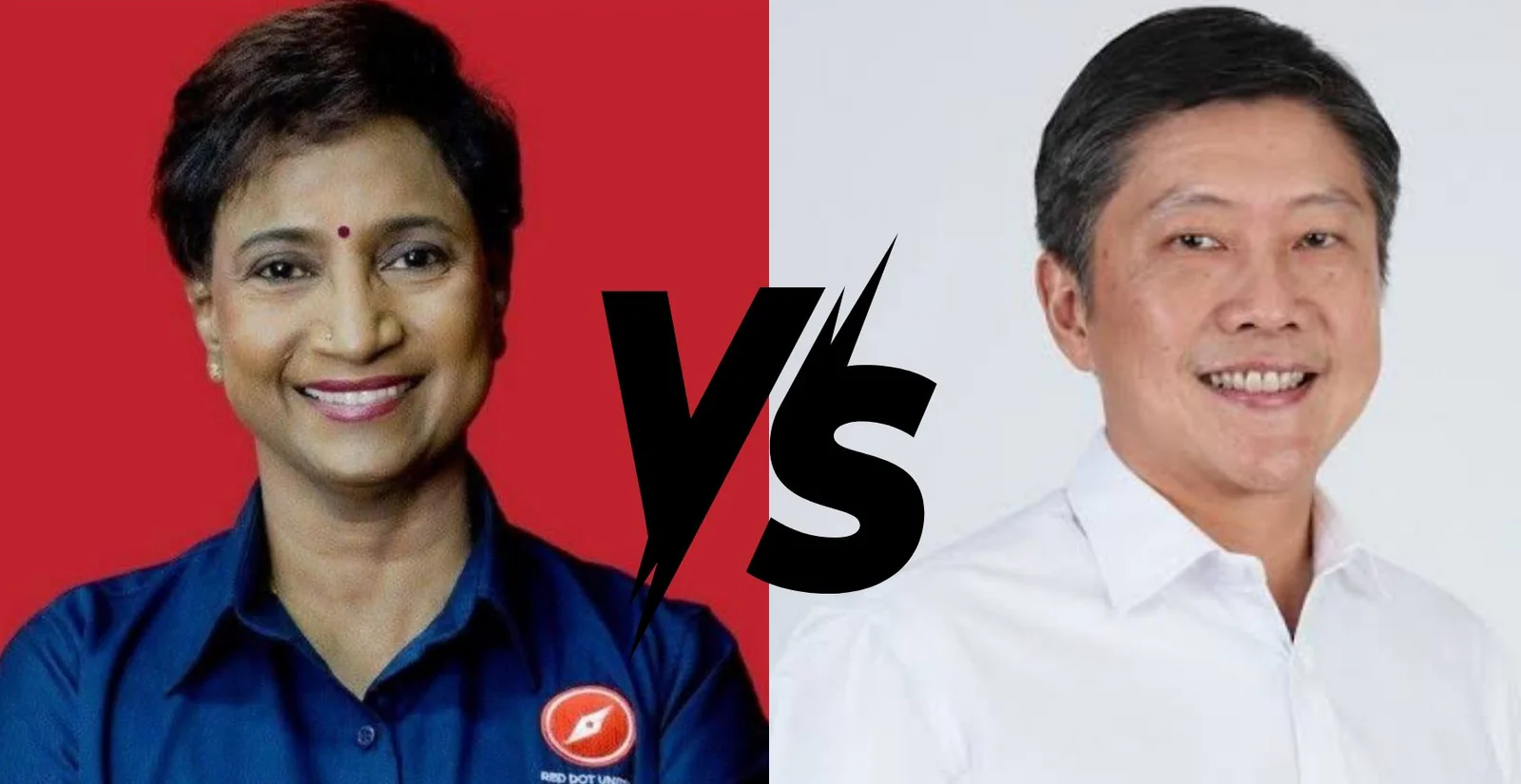许宝琨认为政府在意识形态上并不反对最低工资,但渐进工资模式效果更好
许宝琨认为,很难为所有行业的最低工资设定统一标准。

许宝琨认为,很难为所有行业的最低工资设定统一标准。

在全球地缘政治的风暴中,新加坡如何驾驭大国博弈?选择中立意味着在经济与安全上避免与任何一方结盟。然而,新加坡对中美两大市场的深层依赖,迫使其采取务实外交。这不是中立性的试炼——而是实力的彰显。通过在供应链、科技与外交领域砥砺锋芒,新加坡并非规避站队,而是化被动为主动,让大国竞相争取其青睐。这不是中立——这是实力。

新加坡能否在动荡的地缘政治格局中保持中立?
前贸易及工业部长、现任教育部长陈振声在新传媒播客中指出,问题不在于选择站队——有时这由不得你——而在于让新加坡变得如此不可或缺,以至于各方都想分一杯羹。
陈部长的洞见凸显了新加坡务实的外交策略,但却掩盖了一个冷峻的事实:在中美之间深厚的经济与战略纠葛面前,中立不过是一场海市蜃楼。
由于与美国和中国的经济、战略及地缘政治联系根深蒂固,新加坡在中美贸易战中无法保持真正中立。
2023年,中国占新加坡出口的14%(830亿美元),进口的13%;美国则占出口的13%(760亿美元),进口的10%。
美国的外国直接投资(2340亿美元)是新加坡经济增长的引擎,而中国的“一带一路”倡议则充分利用新加坡港口的枢纽地位,2024年处理了3700万标准箱(TEU)。
新加坡支持美国主导的印太框架,如2022年启动的“印太经济繁荣框架”(IPEF)。这一由14国(不含中国)组成的联盟,旨在促进贸易与供应链韧性。
被排除在IPEF之外的中国,将其视为美国遏制其地区影响力的棋局。中国外交部长王毅痛斥这是经济“脱钩”与“煽动对抗”的企图。
2024年,中国官媒点名批评新加坡在IPEF中的角色,暗示可能招致贸易报复,至今虽未见实质行动,但信号清晰:当最大贸易伙伴感到被背叛,中立不过是镜花水月。
在安全领域,新加坡依赖美国,尤其是在动荡地区维持威慑力量,这使其战略天平有所倾斜。
真正的中立要求疏远与美国的防务合作,但面对区域威胁——包括中国在南海对东盟的强硬姿态——这一选项几无可能。
尽管新加坡在南海没有主权声索,但其支持基于规则的国际秩序,暗中配合美国针对中国主张的“航行自由”行动。这一立场在《2024年新加坡外交政策报告》中清晰阐述,引发中国不满,重创其中立形象。
作为东盟核心成员,新加坡致力于区域团结。然而,东盟内部裂痕——柬埔寨与老挝亲近中国,菲律宾与越南倾向美国——使中立成为外交雷区。
选择中立意味着在经济与安全上避免与任何一方结盟,但新加坡对中美市场的依赖迫使其采取务实外交。
偏向一方可能疏远另一方,而超然物外则可能使新加坡在全球贸易网络中被边缘化。
因此,新加坡追求“战略自主”——两面下注、多元化伙伴关系、保持最大灵活性。这种策略宛如一辆精密战车,游走于大国博弈之间,而不被任何一方完全吞并。
2023年,新加坡6000亿新元的经济在关税逆风中仍增长1.2%,彰显其非凡韧性。
新加坡的真正优势不在于回避站队,而在于让自己成为不可或缺的枢纽,让大国竞相拉拢。
这不是中立——这是实力。
Dr Tan called PM Wong's statement on the US tariffs as a fear-mongering but later admitted that it's a very serious problem.

During the PSP's manifesto launch early this month (Apr 6), Dr Tan Cheng Bock, the party's chairman, criticized the government's response to the US tariffs as "overblown".
He suggested that the government's strong warnings, such as Prime Minister Lawrence Wong's (PM Wong) statement on about the "likelihood of a full-blown global trade war," might be an attempt to "instil fear" in voters to make them choose the incumbent as a "safe bet" ahead of the General Election.
In a YouTube video, PM Wong urged Singaporeans to brace themselves because the risks are real and the stakes high.
Dr Tan called for economists to study the real impact of the tariffs. "Don't just make statements of this kind and scare everybody," he said.
On Saturday (Apr 19), Dr Tan reiterated his party’s stance on the trade war, calling it “a very difficult problem, but a very serious problem” that “we are not taking lightly”.
He said: "Trump is so unpredictable. I cannot give you the answer also. But i don't think that we are just lying low and say oh, nothing to worry. of course, we worry differently. We are looking for answers. This is a very difficult, serious problem. And we are not taking it lightly."
PSP's position on the US tariffs reflects a critical view of the government's initial response as potentially exaggerated for political gain but later recognized the trade war's significant economic implications that should not be taken lightly.
In Jalan Kayu SMC, it's not about picking a winner, but rather, who is the sturdier of two Kayus.

29,564 voters in Jalan Kayu SMC will likely have to choose between two kayus come May 3, 2025: Ng Chee Meng, the People's Action Party's NTUC chief tainted by the 2024 Allianz-Income debacle, and Kala Manickam, Red Dot United's (RDU) combative educator whose 2021 PSP lawsuit reveals a divisive streak.
Ng Chee Meng, 56, served as Chief of Air Force (2009–2013) and Chief of Defence Force (2013–2015) in the Singapore Armed Forces.
Entering politics with the People’s Action Party (PAP) in 2015, he won Pasir Ris–Punggol GRC but lost Sengkang GRC in 2020 (47.88% votes).
As NTUC Secretary-General since 2018, Ng has championed workforce development and workers' rights. Yet, his endorsement of the 2024 Allianz-Income deal, marred by a S$1.85 billion capital extraction and transparency lapses, paints him as either complicit in prioritizing profits or negligent in oversight.
Kala Manickam, 57, is a relatable yet polarizing opposition candidate, bringing a mix of grassroots appeal and contentious history.
A single mother, specialist educator, and SME owner, she holds a Master’s in Lifelong Learning and was a pioneer female officer in the Singapore Armed Forces, serving seven years as a lieutenant.
Kala's 2020 run in Nee Soon GRC with the Progress Singapore Party (PSP) yielded 38.76% of votes, but her expulsion from PSP in December 2020 led to a 2021 lawsuit alleging wrongful termination. The lawsuit was later settled amicably but revealed a divisive streak through accusations of insubordination and solo campaigning.
Now with Red Dot United (RDU), Kala is the likely candidate for Jalan Kayu SMC, advocating for job retraining and cost-of-living relief.
In July 2024, NTUC and Allianz proposed a S$2.2 billion acquisition deal to bolster NTUC Income's competitiveness.
In an August 2024 statement with NTUC President K Thanaletchimi, he endorsed the deal, assuring that Allianz would honor Income’s social mission and existing policies.
But the devil was in the details: a S$1.85 billion capital extraction plan would have seen Allianz recoup nearly half its investment, potentially draining reserves meant to keep premiums low.
The Singapore government, led by Minister Edwin Tong, blocked the deal on October 14, 2024, citing its clash with Income’s 2022 corporatization goal of building financial strength for policyholders.
As NTUC Enterprise board member and NTUC chief, Ng’s claim that the central committee was unaware of the capital extraction plan until disclosure is damning.
Yet, the capital extraction plan—described by former Income CEO Tan Suee Chieh as a “breach of good faith”—contradicted this.
Ng’s claim of acting in “good faith” rings hollow when his dual roles as NTUC leader and NTUC Enterprise board member placed him at the heart of decision-making.
If Ng knew about the extraction and supported it, he’s complicit in prioritizing profits over people.
If he didn’t know, as he claims, he’s guilty of negligence—a damning indictment for a former Chief of Defence Force who built his career on precision and accountability.
SMU’s Eugene Tan called this ignorance “mind-boggling".
This isn’t Ng’s first misstep.
In January 2025, he attributed job insecurity to AI, ignoring netizens’ concerns over foreign manpower policies, alienating workers facing stagnant wages and sparked backlash for misreading ground sentiments..
His 2020 Sengkang GRC loss (47.88% vote share) already marks him as vulnerable.
Ng’s military pedigree and NTUC role are assets, but the Allianz saga reveals a leader either too cozy with corporate interests or too lax to notice their overreach.
His inability to anticipate public outrage—or even know the deal’s terms—undermines his claim to represent workers.
Jalan Kayu’s voters, wary of PAP’s perceived elitism, may question whether Ng prioritizes their needs or the party line. His campaign’s reliance on PAP machinery, despite his “own merits” rhetoric, risks reinforcing this skepticism.
In July 2021, Kala sued PSP in the High Court (later transferred to State Courts), seeking a declaration that her December 2020 termination was “wrongful and invalid” and a S$10,000 refund for election expenses (e.g., fliers, pamphlets).
She argued PSP violated its constitution and due process, claiming she was not informed of specific charges, given no chance to defend herself, and unaware of investigation outcomes.
PSP’s seven affidavits, including from Tan Cheng Bock, painted her as “disruptive” and “insubordinate,” bullying teammates, and undermining cohesion.
Kala's fellow Nee Soon GRC candidate Damien Tay described her as putting her self-interests ahead of the team, during the run-up to the elections. He and candidate Taufik Supan cited how she "went about doing her own things", such as going on solo walkabouts, skipping team meetings and amassing a volunteer pool for herself.
A 17-member petition - including Kala's own election agent - and 55-to-11 cadre vote against her reinstatement bolstered PSP’s case.
Tan Cheng Bock pointed to a November 2020 meeting in where she was confrontational, as if "raring for a fight"; and "aggressively questioned… proof of her wrongdoings by shouting: 'WHAT PROOF? WHAT PROOF?'".
Kala’s public airing of grievances—via Facebook and court—signals a principled stand but also a divisive style.
Her actions suggest a lone-wolf mentality, ill-suited for Singapore’s collaborative politics.
Her move to Red Dot United (RDU), a smaller party, looks opportunistic, especially after RDU chief Ravi Philemon’s own PSP exit.
Kala’s SAF and educator roles show leadership, but her PSP fallout reveals a failure to build alliances.
Ng benefits from PAP’s ground game and Jalan Kayu’s Ang Mo Kio roots, but his Allianz misstep and Sengkang loss make him vulnerable.
Kala’s relatable story and opposition unity give her an edge, but her PSP saga and lesser-known status limit her reach.
The Workers’ Party’s absence (no confirmed candidate) and People's Power Party potential entry could complicate vote splits, though RDU’s coordination mitigates this.
In Jalan Kayu SMC, it's not about picking a winner, but rather, who is the sturdier of two kayus.
No system guarantees flawless candidates, but knowingly selecting a convict pre-election reflects a clearer lapse in judgment.

Singapore Democratic Party’s (SDP) Chee Soon Juan has made a questionable choice nominating Ariffin Sha, the 27-year-old founder of Wake Up, Singapore (WUSG), to contest Marsiling-Yew Tee GRC.
The decision is not a minor oversight—it points to a lapse in judgment that may cast doubts on Chee’s fitness for ministerial office.
While the People’s Action Party (PAP) has faced its own scandals involving individuals who were later convicted (Eg. Iswaran), these typically emerge after elections, not before.
In August 2024, Ariffin was fined S$8,000 after pleading guilty to criminal defamation for publishing a fabricated story about KK Women’s and Children’s Hospital, falsely claiming a woman suffered a miscarriage due to negligence.
Chee’s response to Ariffin's red flag is has been evasive.
At a press conference on April 13, 2025, he urged voters to focus on SDP’s policies, not Ariffin’s past, and compared the case to former PAP Speaker Tan Chuan-Jin’s resignation over an extramarital affair. The comparison misses the mark: Tan’s personal lapse, while serious, did not involve lawbreaking or public harm.
Chee’s deflection sidesteps the core issue of vetting a candidate with a known conviction.
The PAP is not immune to scrutiny.
Cases like former Transport Minister S. Iswaran’s corruption charges in January 2024 and former Tampines GRC MP Cheng Li Hui’s affair with Speaker of Parliament Tan Chuan Jin reveal vetting gaps.
However, these issues emerged after elections. The PAP acted decisively, removing Iswaran from his post and asked both Tan Chuan Jin and Cheng Li Hui to resign.
No system guarantees flawless candidates, but knowingly selecting a convict pre-election reflects a clearer lapse in judgment.
Ariffin’s case strikes at Singapore’s zero-tolerance stance on misinformation.
In 2024, POFMA was invoked 15 times to correct falsehoods, underscoring the harm of unchecked narratives. Ariffin’s defamation directly contravened this ethos, making his nomination a liability in a constituency where community cohesion is vital.
Residents value reliability in governance. Chee’s oversight suggests a disconnect, potentially eroding confidence in SDP’s ability to address bread-and-butter issues like job security and affordability.
Ariffin’s supporters may cite his work with Wake Up, Singapore, which amplifies marginalized voices, or argue his youth mitigates his error. These arguments carry limited weight.
Public office demands high standards, especially in Singapore, where trust underpins stability.
Ariffin’s conviction reflects a lapse in responsibility, and Chee’s endorsement suggests inadequate scrutiny.
PAP manifesto focuses on economic growth, education, social support, healthcare, housing, sustainability, arts, and social cohesion, with detailed initiatives in each area.

The People's Action Party (PAP) launched their manifesto last Thursday (Apr 17), titled "Changed World, Fresh Team, New Resolve – Securing a Brighter Future for You."
Manifesto focuses on economic growth, education, social support, healthcare, housing, sustainability, arts, and social cohesion, with detailed initiatives in each area.
Here are the key points:
The PAP, as the ruling party, launched its manifesto on April 17, 2025, titled "Our Manifesto, Our Promise," at Infinite Studios. Prime Minister Lawrence Wong emphasized navigating global changes and defending Singapore's interests. Key proposals include:
Education is framed as a cornerstone for future success, with a focus on inclusivity and lifelong learning:
This pillar aims to build a flexible and inclusive education system, though challenges may arise in scaling these initiatives effectively.
Social support is a critical focus, aiming to uplift vulnerable groups and ensure inclusivity:
These measures aim to create a more inclusive society, though their impact may vary based on funding and community uptake.
Healthcare initiatives are designed to cover the entire lifespan, ensuring comprehensive care:
These initiatives aim to build a robust healthcare system, though challenges may include workforce retention and funding sustainability.
Housing remains a priority, addressing both supply and quality of living:
These efforts aim to ensure affordable and quality housing, though market dynamics may pose implementation challenges.
Sustainability is a key focus, balancing urban development with environmental care:
These initiatives aim to create a sustainable urban environment, though their success may depend on community engagement and funding.
Arts and culture are highlighted as vital for quality of life and national identity:
These efforts aim to enrich cultural and sporting life, though their impact may vary based on public participation.
Social cohesion is framed as essential for national unity and resilience:
These measures aim to build a united and engaged society, though their effectiveness may depend on community buy-in.
| Pillar | Key Initiative | Target Beneficiaries |
|---|---|---|
| Economic Growth | Adopt AI and clean energy | Businesses, PMETs |
| Education | Build 4 new SPED schools by 2030 | Students with special needs |
| Social Support | Extend Progressive Wages to more sectors | Lower-wage workers |
| Healthcare | Add 13,600 new hospital beds in 5 years | General population |
| Housing | Build 50,000 new HDB flats in 3 years | Home seekers |
| Sustainability | Create 25 new parks | Residents, environmentalists |
| Arts and Culture | Expand SG Culture Pass | Arts enthusiasts |
| Social Cohesion | Enhance integration efforts | New citizens, diverse groups |
| Su | Mo | Tu | We | Th | Fr | Sa |
|---|---|---|---|---|---|---|
30 | 31 | 1 | 2 | 3 | 4 | 5 |
6 | 7 | 8 | 9 | 10 | 11 | 12 |
13 | 14 | 15 | 16 | 17 | 18 | 19 |
20 | 21 | 22 | 23 | 24 | 25 | 26 |
27 | 28 | 29 | 30 | 1 | 2 | 3 |